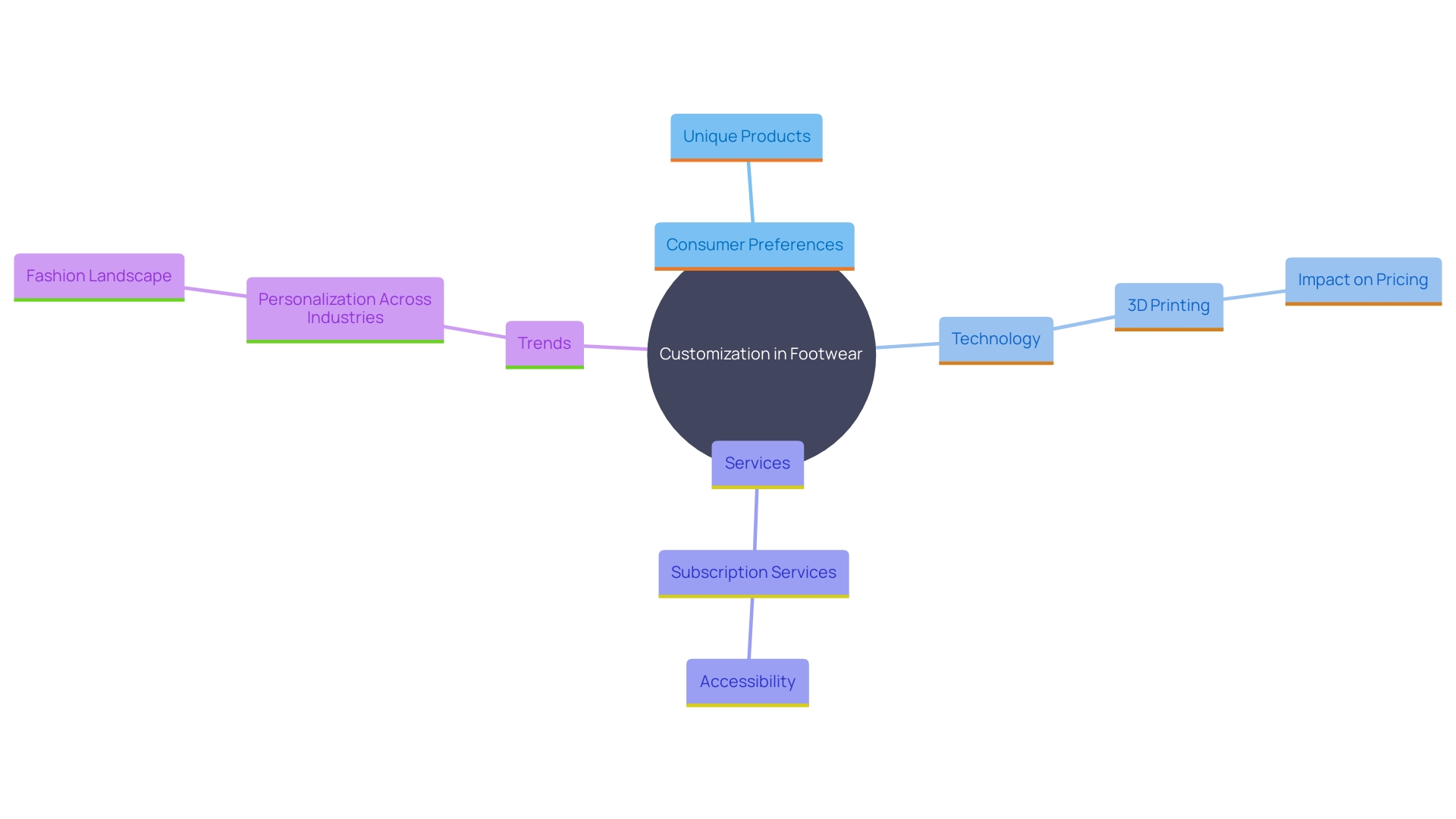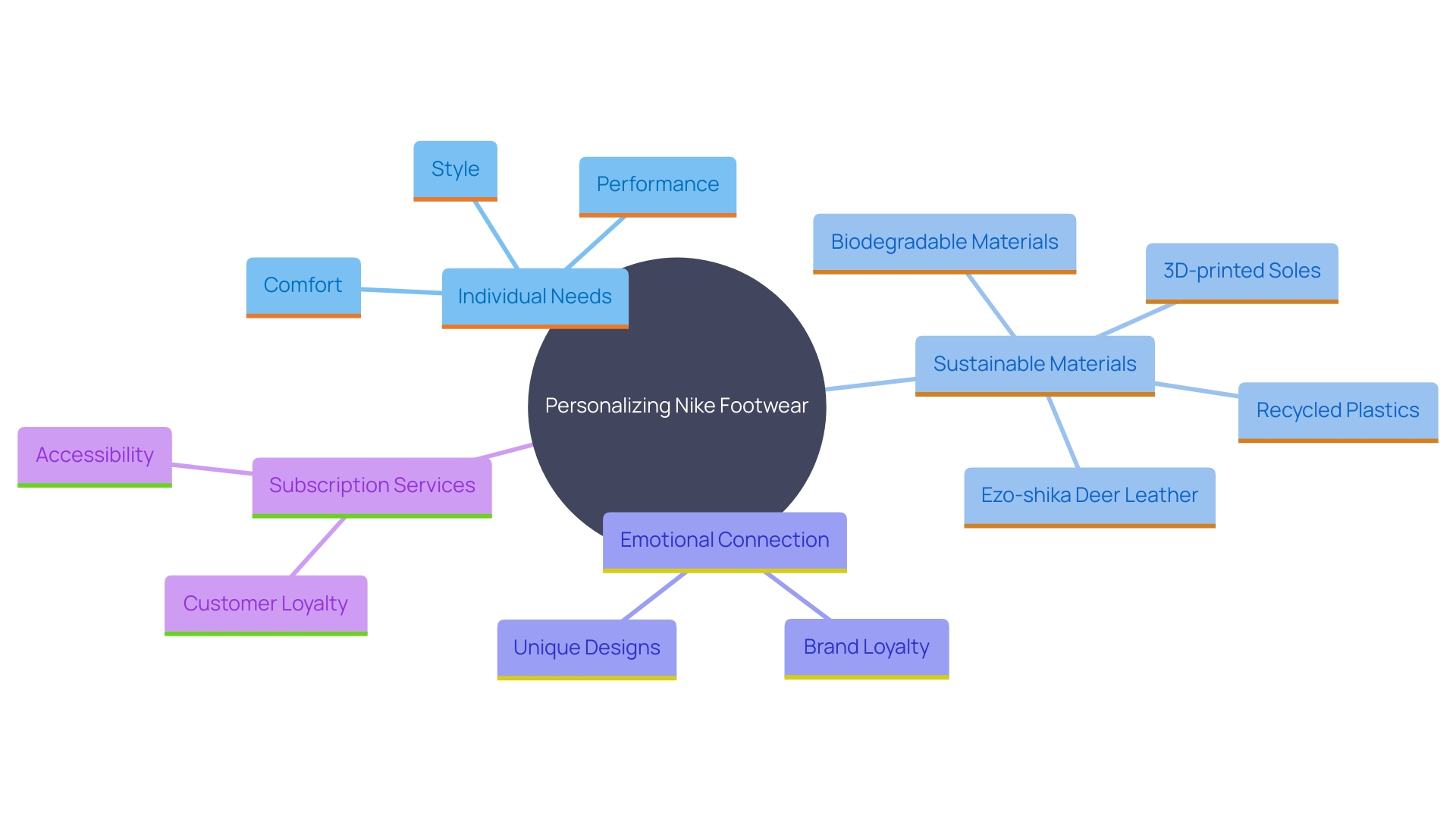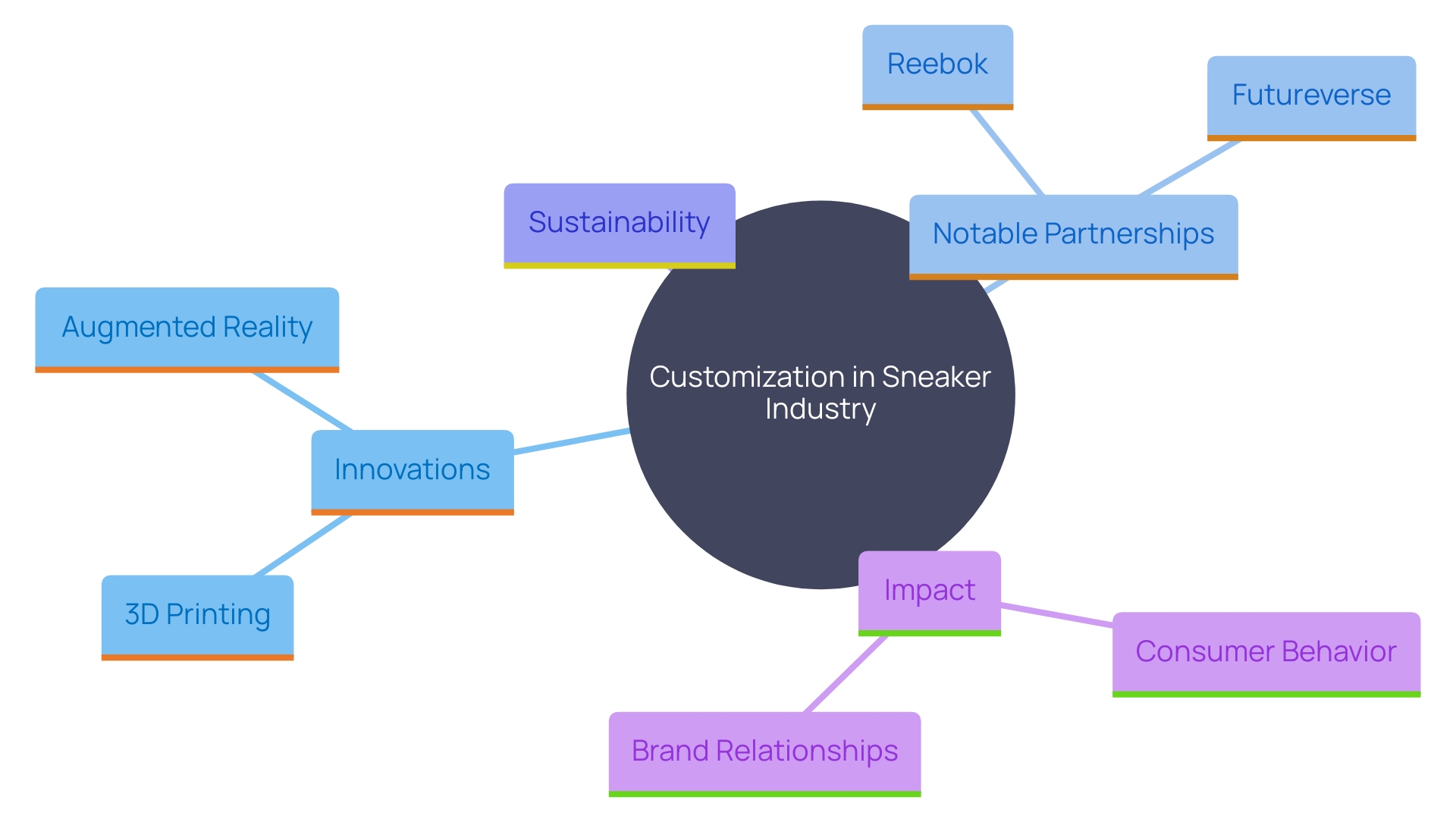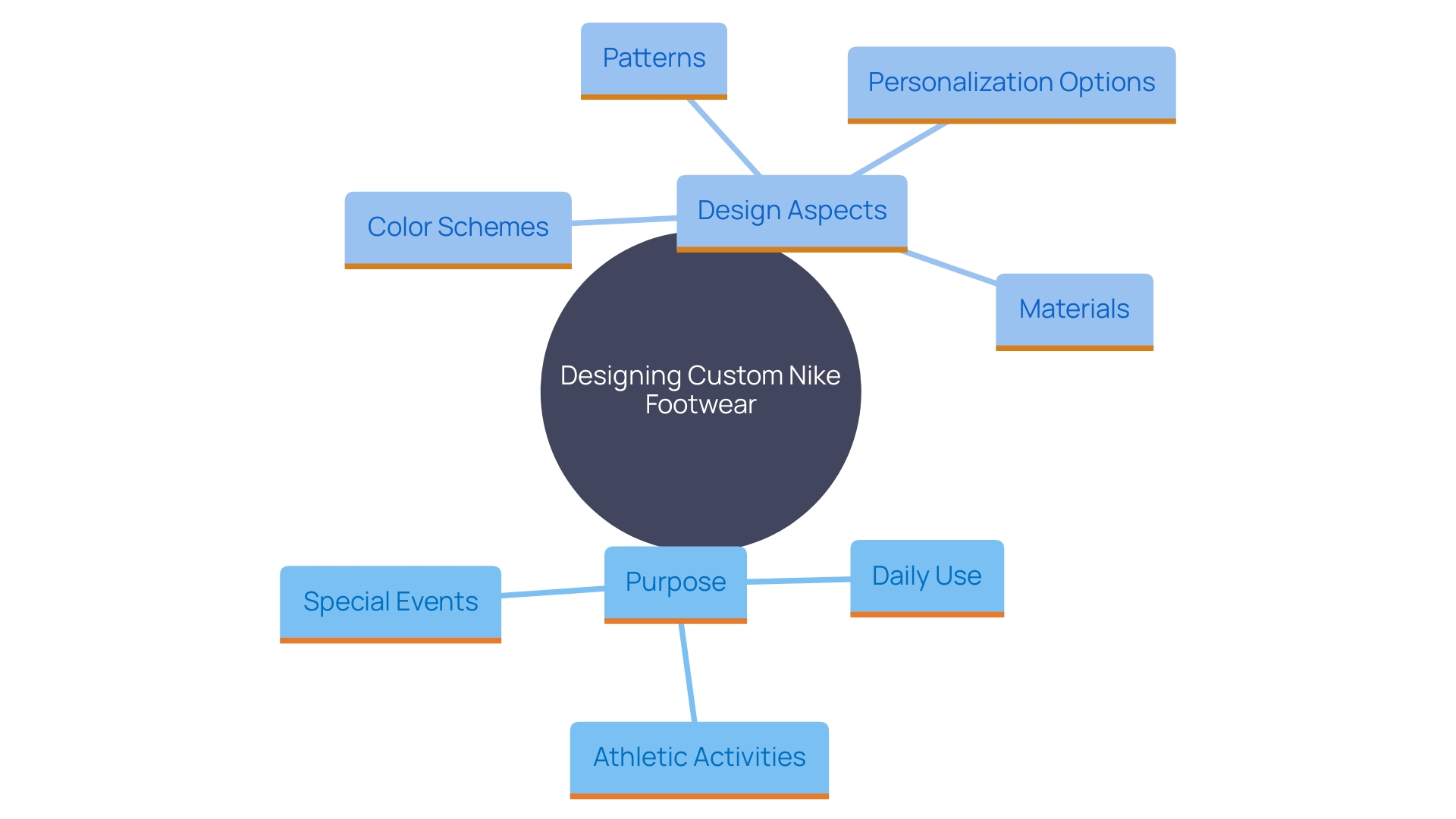Introduction
In recent years, the fashion industry has witnessed a significant shift towards personalization, particularly in the realm of footwear. Consumers are increasingly drawn to unique items that reflect their individual style and preferences, moving away from generic products. This growing demand for customization is fueled by a desire for self-expression and the need to stand out in a crowded marketplace.
Brands that embrace this trend not only cater to consumer desires but also foster stronger connections with their audience.
Technological advancements have played a crucial role in making customized footwear more accessible. Innovations like 3D printing have significantly reduced the cost of custom-made shoes, making them attainable for a broader audience. Additionally, brands are introducing innovative solutions such as subscription services, which make personalized footwear practical and affordable for daily use.
These services often include repair options, further enhancing the appeal and viability of custom shoes.
Research indicates that a majority of consumers are willing to spend more on companies that offer personalized experiences, highlighting a broader trend across various sectors. Brands that excel in providing customized products are likely to see higher customer satisfaction and loyalty, as these products create a stronger emotional connection with consumers. By leveraging advanced technologies and innovative business models, brands can meet the growing demand for personalized products, driving long-term success and fostering deeper audience connections.
The Rise of Personalization in Fashion
In recent years, personalization has radically transformed the fashion landscape, particularly in shoes. Consumers are no longer satisfied with generic products; they crave unique items that reflect their individual style and preferences. This shift towards customization is driven by a desire for self-expression and the need to stand out in a crowded marketplace. Brands that embrace this trend not only meet consumer demands but also foster deeper connections with their audience.
Customization in footwear has become more accessible thanks to technological advancements. For instance, 3D printing technology has significantly reduced the cost of custom-made footwear, making them more attainable for a broader audience. As Suwabe observes, "The 3D printer technology has enabled the creation of custom-made footwear for approximately 60,000-70,000 yen, lowering the price from as high as 300,000 yen." This decrease in price helps challenge the idea that custom-made footwear are luxury items intended solely for special occasions.
Moreover, brands are finding innovative ways to make customized footwear more appealing and practical for daily use. Subscription services are becoming a favored option, enabling consumers to wear and enjoy their customized footwear without the worry of harming them. These services often include repair options, reducing the financial burden and making custom footwear a more viable option for everyday wear. As Suwabe explains, “With the subscription and the installment payment, the more people wear the shoes, the cheaper it gets.”
The growing demand for personalized experiences is clear. Research indicates that 61% of buyers are willing to spend more with companies that provide tailored experiences. This trend is clear not only in shoes but throughout different industries, suggesting a wider movement among buyers towards personalization. Brands that excel in this area are likely to see higher customer satisfaction and loyalty, as personalized products and services create a stronger emotional connection with the buyer.
Overall, the rise of customization in footwear is a testament to the changing market landscape. By leveraging advanced technologies and innovative business models, brands can meet the growing demand for personalized products, fostering deeper connections with their audience and driving long-term success.

Nike By You: A Platform for Customization
Nike By You transforms sneaker design by placing the creative control directly in the hands of the buyer. This innovative platform enables users to choose their preferred colors, materials, and even add personalized text, ensuring each pair of shoes is a distinct reflection of the wearer's unique style. By providing such a customizable experience, Nike nurtures a deeper relationship between the organization and its clients, transforming them from mere purchasers into genuine creators of fashion. As seen in similar initiatives, like Converse's Chuck 70 By You, the ability to design custom footwear has become a trend, allowing enthusiasts to fully express their individuality. This blending of physical and digital experiences not only elevates the user's personal style but also keeps brands like Nike at the forefront of consumer engagement and innovation.
Benefits of Customizing Your Nike Shoes
Personalizing Nike footwear provides many benefits beyond simple appearance. It allows wearers to create footwear that perfectly fits their needs, whether for comfort, performance, or style. This customization is not just about looks; it’s about crafting a product that meets individual requirements. For instance, utilizing high-quality materials like cow, sheep, and even Ezo-shika deer leather guarantees that these products are durable and environmentally responsible. The Ezo-shika deer leather, sourced from Hokkaido, addresses both ecological balance and material quality, making the footwear sustainable.
Moreover, personalized footwear frequently strengthens the emotional bond to the label, as buyers experience a feeling of ownership over their distinctive designs. This connection can lead to increased brand loyalty and repeat purchases. Companies like Nike have even begun subscription services to reduce the barrier to entry, making custom footwear more accessible. This service can include repair options, reducing the financial burden and encouraging more frequent use. Consequently, the more individuals don their customized footwear, the greater the worth and connection they experience, fostering enduring allegiance and contentment.

How Custom Nike Shoes Foster Self-Expression
Custom Nike designs are more than just items to wear; they are a genuine representation of individuality. With options to choose colors, prints, laces, and even add personal text, each pair becomes a unique masterpiece. This creative liberty allows wearers to stay true to their style and make a bold fashion statement. For example, artist Jasmin Pannu's path from hand-painting footwear in high school to becoming an internationally celebrated artist highlights the possibilities of customized footwear. Her work with brands like Nike highlights the blend of art and business, inspiring others to follow a similar path.
Aaron's experience as a BMX racer and his inspiration from high-end office furniture highlight the balance of style and function that custom Nike footwear embodies. By drilling holes into his bike to reduce weight, Aaron sought performance without compromising aesthetics—a principle mirrored in the design of custom sneakers.
Moreover, the rarity and collectability of certain custom Nike designs, such as those produced for Spike Lee, add an element of exclusivity. These limited-edition designs not only elevate the wearer's style but also serve as valuable collectibles, often fetching high prices at auctions like Sotheby's.
Nike's dominance in the footwear market, particularly among Gen Z, underscores the brand's appeal. The ability to personalize sneakers aligns with the younger generation's desire for authenticity and self-expression. As Elizabeth Semmelhack, Director and Senior Curator at the Bata Footwear Museum, notes, forward-looking creators are transforming what we will wear tomorrow, making custom Nike footwear a significant part of the fashion landscape.
The Future of Customization in the Sneaker Industry
As technology continues to evolve, the future of customization in the sneaker industry looks incredibly promising. Innovations such as 3D printing and augmented reality are poised to transform the design experience, making it more accessible and engaging for users. For instance, Ayame's use of Prusa 3D printers to create custom shoe-lasts based on 3D scans of customers' feet demonstrates how this technology can deliver a perfect fit, enhancing both comfort and style. Brands that embrace these advancements will not only attract tech-savvy individuals but also redefine what it means to wear a pair of shoes.
Reebok's partnership with Futureverse on the Reebok Impact project is a prime example of this trend. By utilizing AI and metaverse technologies, Reebok is expanding the limits of digital fashion, providing individuals with a unique and immersive experience. As Reuben Selby, an investor in the company, points out, this collaboration is expected to lead to rapid growth as more designers utilize the platform. The incorporation of cutting-edge technology into shoe design and customization not only meets the increasing demand for personalized items but also fosters a stronger bond between customers and brands.
Moreover, the global footwear market is seeing a significant shift towards environmentally friendly and sustainable options. With growing awareness of the environmental impact of their purchases, shoppers are now more inclined to choose shoes made from recycled materials and organic fabrics. This trend, combined with the rise of wearable tech products that offer customizable features, is driving creativity and collaboration between fashion designers and tech companies. Such partnerships are resulting in innovative products that are both stylish and technologically advanced, further enhancing functionality and user experience.
In conclusion, staying ahead of these technological trends will be crucial for companies aiming to capture the attention of a modern, tech-savvy audience. By embracing innovations like 3D printing, augmented reality, and sustainable materials, footwear brands can offer unique, personalized products that resonate deeply with consumers, creating a lasting impact in the industry.

Tips for Creating Your Perfect Custom Nike Shoes
Creating your distinctive set of custom Nike footwear can be an exhilarating journey. Begin by determining their purpose: whether they're for daily use, athletic activities, or a special event. This will guide your design choices. Next, delve into color schemes that speak to your personality. Don't hesitate to play with patterns or materials; this is your canvas, after all. Adding personal touches like your initials or a favorite phrase elevates the design, making the shoes truly one-of-a-kind. It's no surprise that personalization can significantly boost satisfaction, as shown in a study by Medallia, where 61% of consumers are willing to spend more for customized experiences. So, embrace the opportunity to create something that’s uniquely yours.

Conclusion
The evolution of personalization in the fashion industry, particularly within footwear, highlights a significant shift in consumer preferences. As individuals increasingly seek unique items that resonate with their personal style, brands that offer customization are not only fulfilling these desires but also cultivating stronger connections with their customers. The integration of technology, such as 3D printing and subscription services, has made custom footwear more accessible and practical, ensuring that these personalized experiences are within reach for a broader audience.
Platforms like Nike By You exemplify how brands can empower consumers to express their individuality through design, transforming the relationship between the brand and the consumer into one of co-creation. The emotional connection fostered by customized products often leads to increased brand loyalty, as consumers feel a sense of ownership over their unique creations. Furthermore, the growing trend towards sustainability and eco-friendly materials indicates that the future of customization will not only cater to personal preferences but also align with ethical consumerism.
As technology continues to advance, the sneaker industry stands on the brink of further innovation. The potential integration of augmented reality and AI in the customization process promises to enhance consumer engagement and redefine the footwear experience. With the rising demand for personalized products, brands that adapt and innovate will not only capture the attention of a modern audience but also solidify their place in a rapidly evolving marketplace.
The journey of crafting personalized footwear is not just about aesthetics; it’s about creating a meaningful expression of individuality that resonates deeply with today’s consumers.




